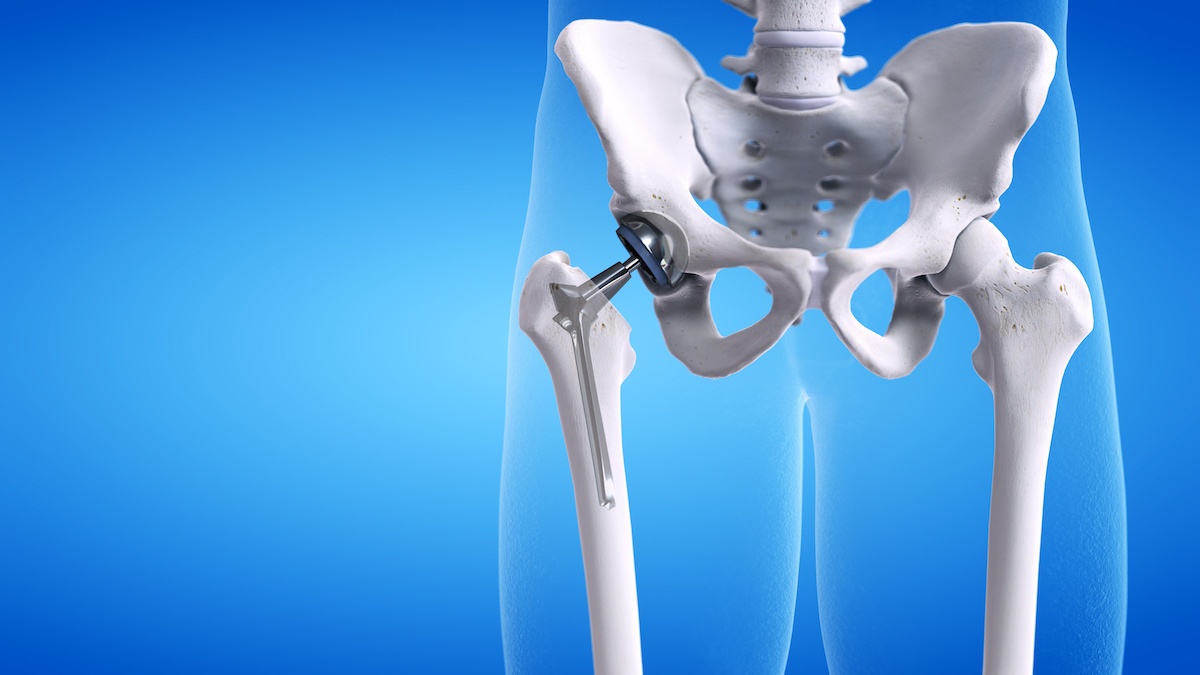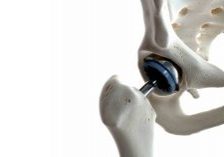Are you considering hip replacement surgery? If you’re experiencing any signs that you might need a hip replacement, here are a few potential benefits of hip replacement surgery that you might want to discuss with your doctor.
1. Relief of Pain
One of the main symptoms you may experience before your hip replacement surgery is pain in the hip area. Reducing hip pain is also one of the top benefits of receiving a hip replacement; almost all patients experience complete (or near-complete) relief from arthritic hip pain1.

2. Improving your Quality of Life
Enjoying life is important and living with pain can steal the joy out of your everyday life. The pain in your hip can limit your ability to participate in the day-to-day activities that you love. A hip replacement will allow you to participate in everyday activities without the limits on your mobility. With the ability to participate in activities, you will regain your independence and get back to enjoying life2.
3. Improved Mobility
Hip replacement surgery removes the damaged sections of your hip joint and replaces them with prosthetic parts, and this artificial joint helps reduce pain and improve function3. After your hip replacement, you should be able to walk without restraint4. In addition, other activities that are difficult with osteoarthritis, such as walking upstairs, putting on socks, and standing up from a chair, will be easier to complete after receiving this surgery4.

4. Relief for Caregivers and Family Members
Do you have family members or caregivers assisting you with everyday activities? After a hip replacement, daily life activities will be easier; this will relieve caregivers and allow them more free time. After you recover from hip replacement surgery, your family members should experience a reduction in their stress levels1.
5. Long-term Health Benefits
According to a study presented at the Annual Meeting of the American Academy of Orthopaedic Surgeons in 2013, receiving a total hip replacement is associated with reduced mortality, heart failure, diabetes and depression rates in Medicare patients with osteoarthritis 5,6. At three to seven years following surgery, there was a consistently reduced risk of heart failure6. At one and three years, postoperative hip replacement patients had a reduced risk of diabetes6. Starting at three years, postoperative hip replacement patients had a reduced rate of depression6.
6. Peace of Mind
Although a hip replacement may temporarily limit your mobility, artificial hip joints are typically projected to last between ten to twenty years without loosening 5. A hip replacement can also prevent unforeseen wounds and injuries from occurring in the future 5. Evidence shows that 80-85% of hip replacements are still effective 20 years postoperatively 2,4.

These are a few main benefits of receiving a hip replacement. It’s important to note that several factors can affect the individual experience before, during or after surgery. Some of those factors include, but aren’t limited to, sex, age and health. Talk to an orthopaedic surgeon near you to see how you might benefit from hip replacement surgery.
References:
- Wilcock, G. K. (1978). Benefits of total hip replacement to older patients and the community. Br Med J, 2(6129), 37–39. https://doi.org/10.1136/bmj.2.6129.37
- Crawford, R. W., & Murray, D. W. (1997). Total hip replacement: indications for surgery and risk factors for failure. Annals of the rheumatic diseases, 56(8), 455-457.
- Zelman, MD, D. (Ed.). (2020, June 2). Hip Replacement Surgery: Purpose, Procedure, Risks, and Recovery. WebMD. https://www.webmd.com/arthritis/hip-replacement-surgery.
- Raleigh Orthopaedic. (2021, January 18). Advantages and Disadvantages of Total Hip Replacement. Raleigh Orthopaedic. https://www.raleighortho.com/blog/hip/advantages-and-disadvantages-of-total-hip-replacement/.
- Advanced Tissue. (2017, July 27). The Long Term Benefits of Hip Replacement Surgery. Advanced Tissue. https://advancedtissue.com/2014/07/long-term-benefits-hip-replacement-surgery/.
- American Academy of Orthopedic Surgeons. (2013, March 22). Hip replacement reduces heart failure, depression and diabetes risk. EurekAlert! https://www.eurekalert.org/pub_releases/2013-03/aaoo-hrr031913.php.







